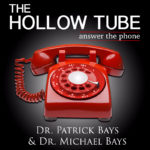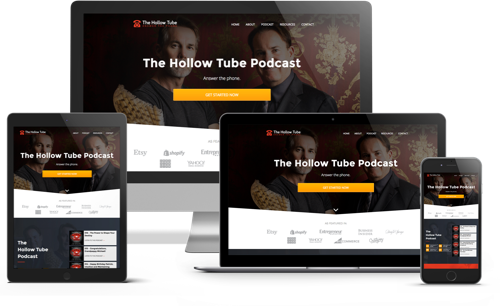
072 – The Cave We Fear to Enter to Find the Treasure We Seek with Dr. Dan Engle
Podcast: Play in new window | Download
Have you ever felt vulnerable? What do you think of when you hear the word vulnerability? Do you think of insecurity or uncertainty or being exposed to danger? Do you think of weakness, fear, hurt, or betrayal? Do you think of courage or strength? I’ve been thinking a lot about vulnerability lately. This podcast has been sitting on my desktop since we recorded it a year ago. When I played this podcast again, I realized it might be somewhat controversial.
That made me feel vulnerable. I put this episode on the back burner for a few more days, then something happened that caused me to make a cosmic shift. I got the news that my 11 year old nephew Cameron was in the Pediatric ICU at Tucson Medical Center with a dangerously high blood sugar of over four hundred. The working diagnosis was type 1 or juvenile onset diabetes which means a lifetime of monitoring blood sugar and insulin injections.
When I arrived at the hospital, I saw him lying under a sheet looking vulnerable. Cameron then said, “I’m sorry I did this to myself Uncle Mickey.” He didn’t do anything. Type 1 diabetes occurs when your immune system attacks and destroys the insulin-producing beta cells in the pancreas. Scientists think it’s caused by a genetic abnormality or environmental factors like a virus. It’s not caused by eating too much sugar.
Cameron is an extremely bright and sensitive kid who has not had the easiest childhood. I explained that he didn’t do anything, and it wasn’t his fault. He was so scared and asked me a million questions while keeping an eye on the nurse preparing his IV. I did my best to reassure him and remind him that it’s always worse in your head. The pediatric nurses were the best and spoke to Cameron on his level.
He breezed through the IV. The next day after work I went back to visit Cameron. I saw an immediate shift in him. He looked confident and relaxed. I remembered that when we go through a trauma we experience the phases of grief, which are denial, anger, bargaining, depression, and finally acceptance. He had reached acceptance and took his destiny into his own hands. He calculated the carbohydrate load of his dinner, checked his blood sugar, calculated his insulin dosage, and gave himself an injection.
He taught me what a character-building thing vulnerability can be when we embrace it. I kept thinking about the symbolism of vulnerability represented as a cave or a hollow tube. Today’s guest has walked through the dark tunnel of vulnerability once or twice in his life. He showed up to his first day of class in medical school with a broken neck and a stainless steel halo brace bolted to his skull. He went on to Magna Cum Laude from the University of Texas Health Sciences in San Antonio. He earned a double board certification in psychiatry and neurology. He’s an integrated neuropsychiatrist and peak performance expert. He’s the author of The Concussion Repair Manual. It’s his goal to facilitate the innate healing of the body and the mind.
I met doctor Dan at a meditation Workshop. The best way I can describe him is that he’s a brilliant classically trained physician with an open heart and an open mind. He’s lived in an ashram. He’s been in sweat lodges, on vision quests, and the grueling Lakota Sun Dance. He spent a year barefoot in the jungle of Peru studying with a shaman. On this episode, he’s going to tell us about the split-second decision he made one hot summer day just before medical school that nearly killed him and changed his life forever.
Topics Discussed Today
[15:07] Dr. Dan had gone to Europe in between college and medical school. He got back two weeks before med school was going to begin. He went down to the pier and dove head first off a railing about 15 feet off of the ground. He dove straight in with his hands behind his neck.
[16:31] As soon as he entered the water his head hit the ground and split open. He climbed back up the pier and walked home and by the time he got home he was in shock.
[17:55] He was super lucky and was one of the 5% of people who can go through that and not become paralyzed.
[22:56] He was so driven in high school and college, but he slowed down after medical school.
[26:45] Patterns develop and trauma gets passed on through DNA. Trauma patterns will get expressed generationally.
[28:59] Healing ourselves will influence our ancestors.
[31:13] 85% of our personalities are set by the time we’re 5 or 6 years old. The personality construct is molded while we’re neurologically and psychologically plastic.
[32:35] Kids think they’re the center of the universe, which means that everything happening is their fault.
[35:24] We all have different archetypes. If we know what those archetypes are we can honor each piece of our self.
[37:32] We all have different aspects and that polarity is what drives us into different relationships.
[37:47] When we’re more balanced and harmonious within ourselves, we can experience balanced and harmonious relationships with others. Because we aren’t necessarily looking outside for others to complete us.
[39:53] Everything is sacred through the image of that thread of connectivity.
[40:33] Dr. Dan moved to Portland. He was studying Buddhism. He discovered the connection to the Earth that Native American medicine has.
[41:39] He started going to sweat lodges when he was in Portland. He then got into Lakota medicine. He founds so much resonance in the ritual, practice, songs, and prayer.
[42:17] He enjoyed surfing his consciousness on the edge of this experience.
[42:55] He then discovered ayahuasca. Two plants are combined to create the waking dream.
[44:00] It’s a tradition of the Amazon River basin. The medicine creates a neurochemical reset. It’s also a mind-altering hallucinogen that opens up consciousness.
[45:16] There’s life before and after medicine.
[48:06] After Michael’s, ayahuasca experience he feels that he became the man that he was meant to be.
[51:52] Dr. Dan lived in the jungle for a year. He discovered integrity and being an integrated and whole person.
[56:51] Dr. Dan works with clients using cannabis and ketamine. There are also other natural medicines that have massive clinical benefit, but aren’t likely to become legal anytime soon.
[57:46] Challenges include using these medicines in a way that is sustainable.
[01:00:23] MDMA can open up the heart and mind to heal trauma. The memory can come up and be processed and worked with and through and integrated. It breaks the pattern.
[01:02:35] It’s not always easy to integrate breakthrough experiences back into the daily routine.
[01:04:50] Doing work through a sense of martyrdom is not sustainable. The source of service needs to come from a place of integrity.
[01:07:52] At one side of vulnerability is courage. Our greatest potential lies in the unknown. Our strength and power light at the other side of vulnerability.
[01:08:18] I cannot and do not recommend that anybody take any illegal mind-altering substances.
[01:09:19] What I went through 15 years ago was the most physically demanding and absolutely terrifying thing I ever went through in my life. The shamans call it the little death for a reason. We’re forced to face the stuff that we never want to look at.
[01:09:55] The real work and the hard work started what I got home. I’m still working and practicing every day.
Links and Resources:
Uncle Michael @TheHollowTube on Twitter
Uncle Michael @TheHollowTube on Instagram
Michael Bays on Facebook
The Hollow Tube Facebook Page
Brene Brown
Helen Keller
Dr. Dan Engle
The Concussion Repair Manual
Episode 071- Finding True Magic with Jack Elias
Viktor Frankl
Frank Fools Crow
MAPS
From Shock to Awe
Jordan B. Peterson

